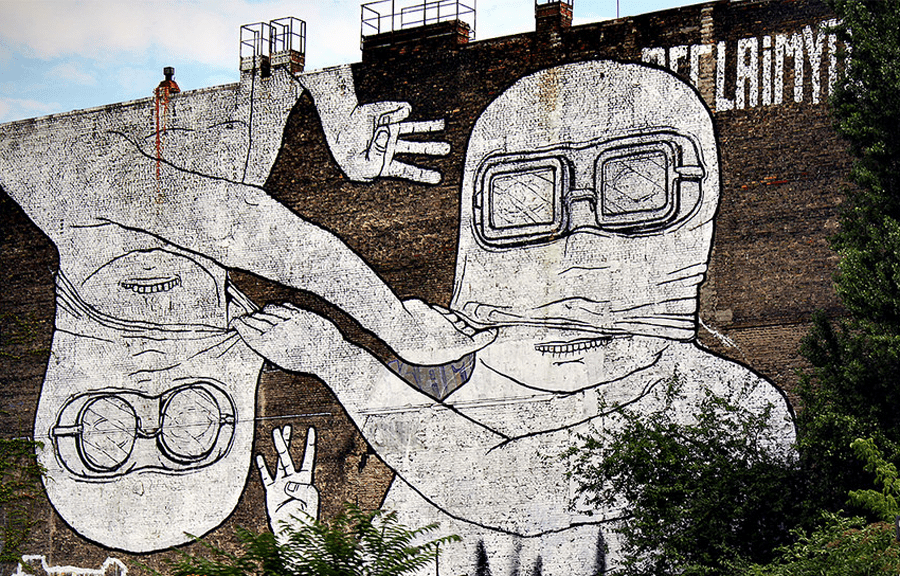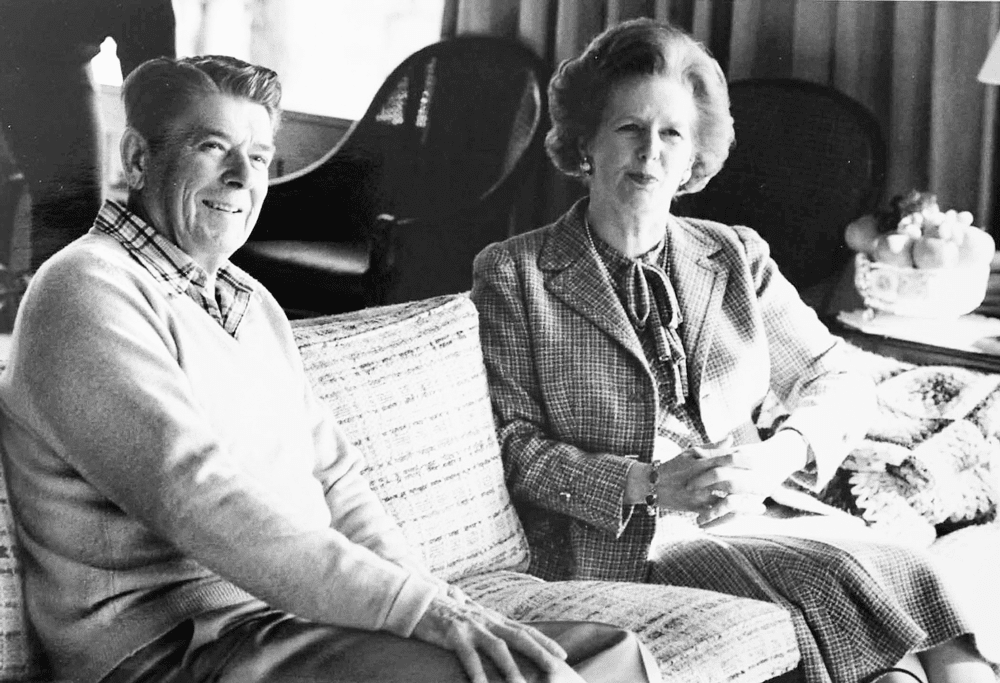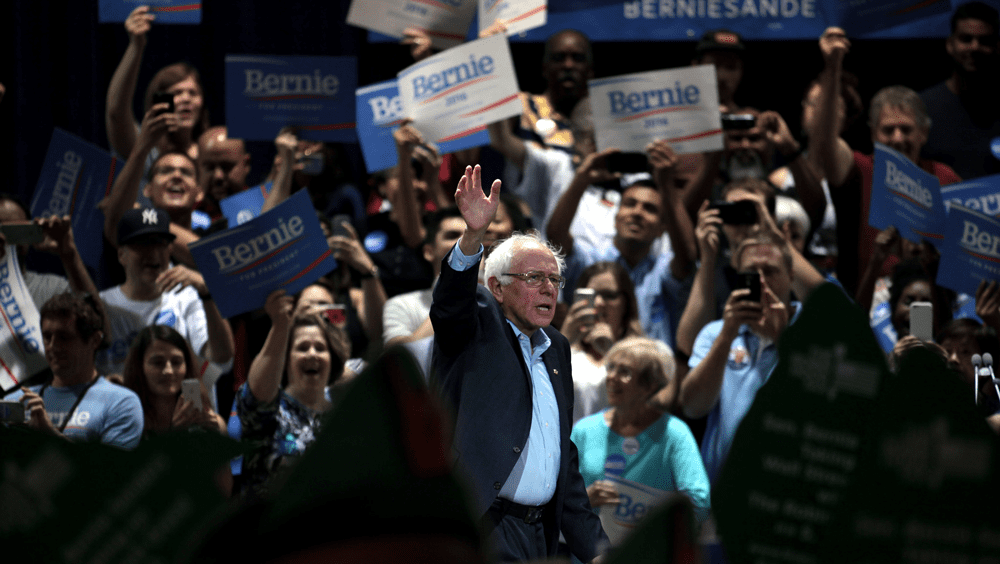The Good Life?—Review of Monbiot’s Out of the Wreckage
George Monbiot has produced an encouraging manifesto for political transition to a happier, more sustainable world. Yet, Richard Douglas finds, its vision of the good life is undermined by an unresolved tension surrounding ideas of individualism.

In Out of the Wreckage George Monbiot goes beyond offering a critique of the environmentally unsustainable, politically dysfunctional status quo: this is an attempt to change it. Monbiot’s book contains both a vision of a new society – more democratic, cohesive, and humanitarian – and a roadmap for how to get there. While a bold and inspiring effort, Monbiot’s idea of the good life ultimately founders on a contradiction: that between its aversion to a vision of humanity as being made up of self-sufficient individuals, and its unwitting commitment to precisely this same vision.
To begin with, this book is an understated triumph of style. Short and accessible, its prose remains focused on its practical objects: to explain, persuade, inspire, and mobilise. It practises what it preaches, too. Building his argument on the premise that human beings are defined by their selfless capacity for co-operation, Monbiot is quick to praise and draw on the work of others – Kate Raworth on economics, George Marshall on narrative framing, and Roman Krznaric on empathy, as just a few examples.
Drawing on Marshall, Monbiot offers the reader a simple narrative. Human beings are naturally good, he says, and this goodness consists in the quintessential human attributes of empathy and altruism. But in the modern world we have been taught to disregard this truth. In its place, we have been induced to believe that human beings are naturally selfish – a narrative Monbiot traces all the way back to Thomas Hobbes, and his depiction of life in the state of nature as a war of all against all. The influence of this narrative – amplified by “certain politicians, economists and commentators” – has grown to the point at which individualism has become the secular religion of our time. Its political form Monbiot identifies as neoliberalism.

How can this enemy be overcome? Monbiot advocates a range of grassroots community projects that would activate our innate empathetic nature. This idea is presented both as an illustration of the good life in action, and as a means of helping to build the social agency required for political change. He is optimistic about the potential for rapid political transformation, basing this on the idea that an awakening to one’s empathetic nature could become a self-fuelling social phenomenon. This optimism is tempered, certainly, by a self-conscious realism: dismissing the case for anarchy (in thoroughly Hobbesian terms we might observe), he argues that even the world transformed will retain a need for political authority, as without it communities are at risk of dissolving in violence. But government can still be squared with the good life, so long as democracy is devolved, away from parliamentary elites and towards the people – a necessarily good device since, as he reminds us, the people are naturally good.
While there is much to admire in this book, there are also serious shortcomings – serious in that they relate not just to this book but to an extensive philosophical hinterland. Nowhere is this more the case than in the absence here of any metaphysical or transcendental context for human life. It’s striking, for example, that in all the talk about the need for bottom-up institutions to build a sense of community, Monbiot makes no mention of the role of churches; while his only references to religion are to the secular religion of individualism. His is, indeed, an intensely secular, disillusioned version of the good life: it not only ignores traditional religions, but – in recognition of the environmental limits to growth – denies the modern faith in material progress towards a technological utopia. What, then, are we left with? Despite Monbiot’s rightful recognition of the centrality of narrative, the story of our lives offered here is thin gruel. There is nothing to connect us to explanations in response to the big questions: not least, where do we find a sense of permanence and purpose in lives we know to be mortal?
This lack, both of a metaphysical map on which to place humanity and of faith in intergenerational progress, cramps the moral philosophy at work here. Monbiot offers us a kind of virtue ethics in which the human virtues are empathy and altruism. It is to his great credit that he treats these with the seriousness they deserve, it being all to easy to damn them with the faint praise of just “being nice”. But still, they hardly exhaust the human virtues: what about man as a creative, thinking, achieving being – one who does not just relate to his or her fellows in the here and now, but seeks to make sense of existence, realise ideas in practice, give one’s life to something or for someone? Humans are, uniquely, thinking beings who are aware of their own mortality. As Zygmunt Bauman put it, this makes permanence into an urgent task, giving rise to culture as a “huge and never stopping factory of permanence.”
Excluding religion and culture from the human essence, the human stage is reduced to the domestic sphere, the good life narrowed to the considerate conduct of the individual in their local time and place. Monbiot’s stated aim is to supplant Homo Economicus with Homo Empatheticus. But while this sounds like a profound change, one is just the flipside of the other (in much the same way, we might say, as Adam Smith’s Theory of Moral Sentiments is the flipside of The Wealth of Nations). Certainly, one is altruistic, the other selfish; but both are equally private, self-contained individuals. Both are economic in the Aristotelian sense, of the self as pertaining to the private household rather than the public stage.

Monbiot’s unwitting commitment to individualism causes him serious problems when he considers the role of community within the good life. Having identified empathy as the essence of humanity, he sees the implication that one must be embedded within a community in order to be fully human. Straightaway, however, he registers a protest: the last thing he wants is to live in the kind of “drab conformity” that characterised the “thick” sense of community that used to obtain in the old days. Tellingly, he misidentifies the “thick” sense of community of Britain in the 1950s as being a product of the top-down welfare state, in the process revealing his animus against all conventional forms of collectivism, whether administered through state bureaucracies or embodied in social roles and conventions. Indeed, as he makes clear, the communities he values are those “vibrant” with individual agency. And here we have it: this is community as a network of liberal individuals, each free to enjoy their own lifestyle however they see fit, the glue that binds them being an empathetic respect for the sovereign individuality of each other.
To be fair to this vision, any such empathetic respect for individual difference must involve identifying oneself with others, and thus implies the discovery – even if weakly developed – of a shared common identity on some level. And Monbiot rightly identifies that this sense of identifying with others can be built up, through local projects which bring people together. Unfortunately, in keeping with the subjectivist persona of Homo Economics/Empatheticus, he overlooks the essential “project” which is the lifeblood of community: work. Work, that is, in the sense of the efforts and roles necessary to the reproduction of a living community: for what is a community but a collection of people who depend on each other? But far from advocating the reintroduction of meaningful and necessary jobs, Monbiot buys into the “end of work” thesis (incoherently, we might add, since ongoing automation depends on a continued growth in energy use, seemingly quite incompatible with his understanding of environmental limits). Thus the projects he suggests are such artificial concoctions as “World Cafes”, where people sit and eat together, and talk and talk and talk until they all agree on something.
Such problems with community naturally extend to Monbiot’s political vision, and the democratic practices he sees necessary to protect the good life. Here he faces the problem of reconciling individualist agency with the twin needs, both for a political authority to exercise power over society, and (in order that this power be legitimated) for a collective identification with that authority. In keeping with the individualistic temper of his times, Monbiot bridles against representative democracy: in part, one suspects, because it is simply inauthentic, an infringement of one’s sovereign individuality to be represented by someone else (with more power), who necessarily agglomerates one’s interests with other people’s. Above all, however, he is wary of elites manipulating the structures of representative democracy to wield state power for their own neoliberal ends (and with some good reason).
To counter this problem he draws on a panoply of suggestions for supplementing (in practice, circumventing) representative democracy: tranches of MPs to be chosen through sortition rather than election; citizens’ conventions to determine policies the government would be mandated to execute; constant feedback from online forums; lots of binding referendums. Through such means, “The great constitutional question – where should sovereignty reside, in parliament or the people? – [will be] decisively resolved in favour of the people.” Of course, it is hardly as if “the people” would be exempt from the influence of elites of some sort or another. In fact, Monbiot bakes the need for citizens to be influenced into his system: citizens’ conventions must be educated by “expert tutors” and steered by “facilitators”, and the will of the people subject to veto by a constitutional court. Here we recognise the attempt, common to many advocates of direct or deliberative democracy, to reintroduce rule by a technocratic elite by the backdoor. The problem for such theorists is, is it really possible to do so much to undermine respect for political authority, and not undermine intellectual authority at the same time? Having removed the legitimacy of any opinion which elevates itself above the popular will (or the most voluble articulations of it), where are the brakes to stop the whole system careering down the slope to demagoguery and dictatorship?

In the most surprising passage of this book, Monbiot goes beyond such an accidental opening of the door to demagoguery: in his enthusiasm for the possibilities of political transformation he comes close to embracing it himself. In this, he takes his inspiration from the zeal displayed by volunteers on the Bernie Sanders presidential campaign. Presenting accounts of barnstorming events that hint at the atmosphere and form of evangelical meetings, he senses that the Sanders campaign has discovered both a powerful thirst for reform and a template for mobilising it effectively. Refining this template, Monbiot imagines movements based around rallies in which “the energiser” whips the crowd into a frenzy, before leading them in an anthem and directing them towards their next tasks. The frankly sinister overtones of such an image are thankfully undercut by the comfortingly British suggestion that candidates for role of “energiser” could be found from among the ranks of “DJs, motivational coaches, fitness instructors, bingo callers, sports commentators, auctioneers and chat show hosts.”
Be that as it may, how does Monbiot, the arch-valuer of individual conscience, get to the point where he imagines losing himself in a crowd, unified in the persona of a charismatic leader, and directed under the pressures of moral conformism? To understand this it might be useful to go back to the topic of virtue ethics. Within Monbiot’s virtue ethics, we recall, human beings are naturally good; we just need to understand this, to see who we really are, and we will necessarily be good people. In practice, his picture of humanity is less universalistic than this. While “we” are good, many of “us” have been manipulated into forgetting this by “elites”. This implies three classes of humans: the Awakened, who realise their true natures and are thus naturally good; the Duped, who have been tricked into forgetting their true natures and thus are good, but only as the potentially Awakened; and the Elites, who do not appear on the map of humanity at all. This contrasts with what we might call the proper form of a virtue ethics, which applies equally to all human beings, but does not say that any are innately good: rather, it describes the ideal of a human being, and thus sets out the attributes for us all to seek to live up to in order to be a good person. In this light, we might understand the conception of the Awakened to belong less to the framework of a virtue ethics, and to be more akin to the idea of a spiritual elect – virtue in this case to be the recognition that one is already virtuous. Within religious movements, it is necessary for there to be a group of such people in order to establish this status as a category to belong to (as well as a category of the wicked or damned to define oneself against). Hence, perhaps, Monbiot’s identification with an anonymous mass of likeminded others. Perhaps what this most illustrates is simply that, caught between liberal individualism and universal disillusionment, life becomes unbearably lonely: the longing for belonging rushes in.
For all of its flaws, Out of the Wreckage has some great strengths: above all its positive tone and economic style. It succeeds, where so many environmentalist texts fail, in inspiring confidence in our collective potential to achieve political transformation. Even its dicing with demagoguery is based on a positive vision of human nature, a welcome contrast to the prevailing anti-humanism which colours most of the theoretical literature on the Anthropocene. It will be directly relevant to anyone with an interest in realising a vision of sustainable prosperity. What it highlights – its flaws above all – is the dependence of such hopes on developing a political philosophy, based on an understanding of what it is to be human.
– –
A short version of this review appeared in Prospect Magazine’s Books in Brief column.
